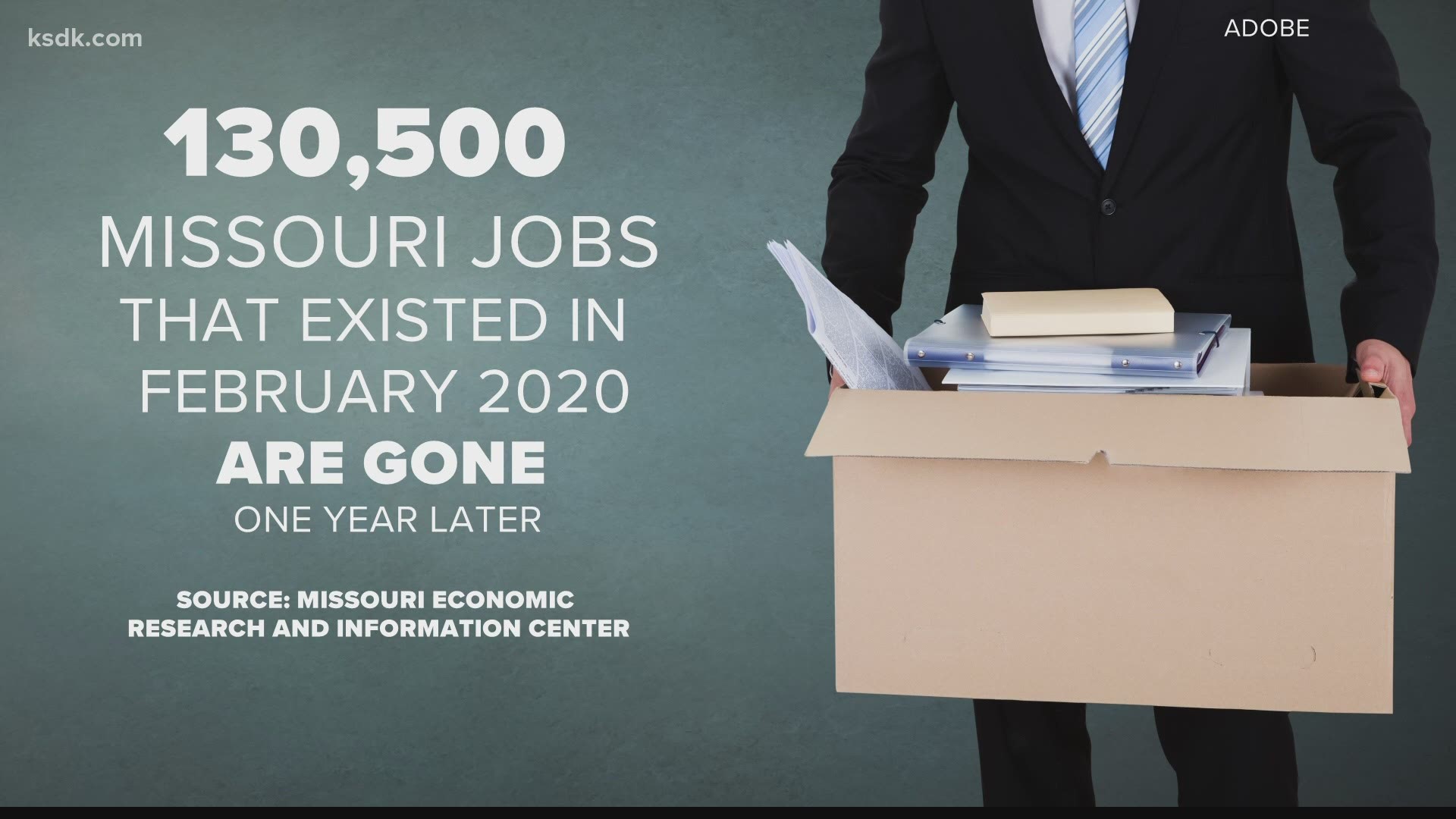ST. LOUIS — It's a good headline on the unemployment front: numbers out Wednesday show the lowest new jobless claims since before the pandemic. The Department of Labor data shows claims fell to 684,000 last week, marking the first time since last March that first time new unemployment claims fell below 700,000.
So what, if anything, does this say about our local economy?
“It's certainly good news,” said Steven Fazzari, professor of economics and sociology at Washington University. “It's not a sign that everything is fine. But we are doing better right now.”
He said one of the most important factors when it comes to assessing the economic landscape is total unemployment.
In Missouri, there are 130,500 fewer jobs in February 2021 than in February 2020, according to the Missouri Research and Information Center’s most recent monthly jobs report. Nationwide, ongoing continuing claims fell to 2.87 million—down by 264,000—but total claims are still more than four times their pre-pandemic level, reports NBC News.
“Which says we have a long way to go yet,” said Fazzari. “But again, if there are a few people losing their job, that's certainly good news and will help us eventually bring that number down.”
Michael McMillan, president and CEO of The Urban League in St. Louis, says they've updated training programs to get people into the types of jobs available now.
“We have been able to put hundreds of people into new careers,” he said. “You see individuals getting back into the workforce and pivoting and doing something different, perhaps that they have never done before in their entire lives.”
But that's not always a good thing. McMillan says many St. Louisans are “underemployed,” working jobs for which they are overqualified.
“In some cases, they've had to take on two jobs to make the money that they previously had with one,” said McMillan. “I hope that once the economy gets fully back to where it was before COVID, that people will then be able to pivot and go back to careers that are more befitting of the work and the history and the education that they have achieved in their careers already.”
The economic recovery continues to be dependent on the pandemic recovery, and the two may even follow similar timelines.
“I'm guardedly optimistic that by late spring, early summer, we'll start to see the labor market accelerate,” said Fazzari. “We're not quite there yet, but I'm hopeful we'll see it in a few months.”

